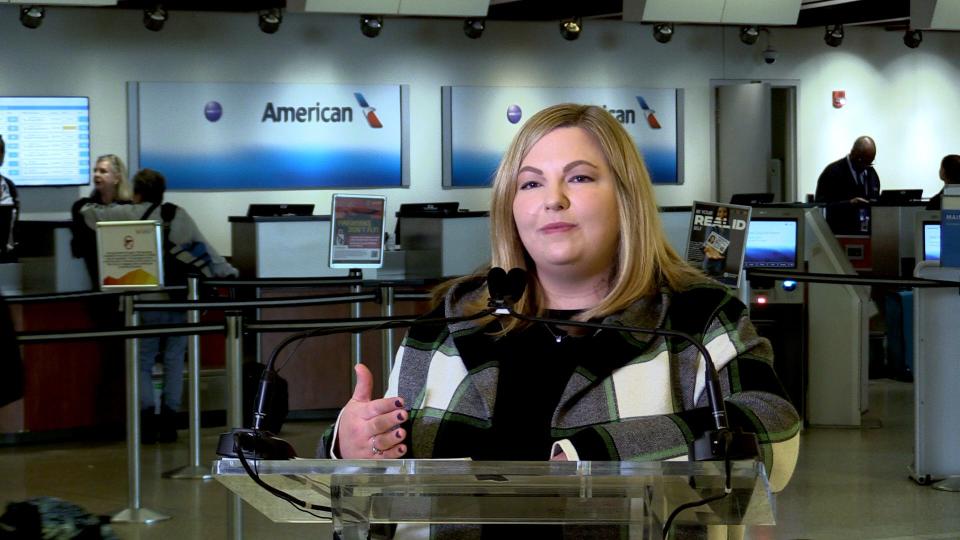NATO plans to offer Ukraine a security package when the alliance convenes its annual summit this summer in Washington, though it’s expected to stop short of accepting the nation’s long-standing request for membership amid Russia’s invasion.
In addition to unveiling the package in July, an estimated 32 countries are finalizing a series of bilateral agreements to support Ukraine ahead of the summit, with 13 finalized so far, according to Julianne Smith, the U.S. ambassador to NATO.
“Allies will be putting forward a whole package of deliverables that will serve as a bridge to their membership inside the alliance,” Smith said at a Defense Writers Group roundtable on Monday. “Part of the package will be the language we use to describe Ukraine’s membership aspirations in the declaration itself.”
“Part of it will be an institutionalization of some of the bilateral support that’s currently being provided [to] Ukraine, and tucking it under NATO command. Part of it will be working to identify new resources for our friends in Ukraine, and ensuring that we send a signal to Moscow that the NATO alliance isn’t going anywhere,” Smith added.
Ukrainian President Volodymyr Zelenskyy asked for fast-tracked accession into the alliance shortly after Russia’s full-scale invasion in 2022 — a request NATO rebuffed at last year’s summit in Lithuania. Instead, NATO offered Ukraine a multiyear assistance package meant to bolster its defenses and help it transition away from Soviet-era equipment.
Ukrainian entry into NATO would allow Kyiv to invoke the alliance’s collective defense clause, potentially triggering a broader regional conflict with Russia. U.S. President Joe Biden said last year that the war with Russia would have to end before Ukraine enters the alliance.
Still, during an April visit to Kyiv, NATO Secretary General Jens Stoltenberg vowed that “Ukraine will become a member of NATO.”
“The work we are undertaking now puts you on an irreversible path towards NATO membership, so that when the time is right, Ukraine can become a NATO member straightaway,” Stoltenberg said.
Some defense companies from the NATO bloc have expressed interest in co-producing certain military capabilities like unmanned systems. The U.S. in May announced a $2 billion Foreign Military Financing package largely geared toward helping Ukraine grow its defense-industrial base.
“This is coming from, in large part, European or Canadian or American companies that are looking at co-production opportunities,” Smith told Defense News.
Regional plans
Smith noted the July summit, which marks NATO’s 75th anniversary, will also focus on the regional defense and deterrence plans for northern, central and southern Europe, which the alliance formally agreed to during last year’s summit.
“It’s going to mean a major shift across the alliance in how countries invest, procure, work together to implement and execute those regional plans,” the diplomat said.
The plans are partially aimed at guiding NATO members when they make military procurement decisions to ensure they’re buying the right capabilities. For instance, a country could be responsible for three core tasks within a regional plan and would be expected to make procurement decisions accordingly.
“It’s ultimately up to them on how to spend the resources, but they have to answer to the regional plans,” Smith said.
She argued that the regional plans will also help reassure defense manufacturers that NATO intends to keep procuring larger amounts of ammunition and other materiel over the long term, encouraging them to ramp up production.
“It’s not a signed contract, but helping them see what the requirements will be across the alliance that’s tagged to these regional plans will certainly assure them that the demand signals will not just be over the next 12 months, but the demand signals to industry will be for the better part of a decade,” she said.
The summit will also focus on burden-sharing. Smith expects that slightly more than 20 countries will spend at least 2% of their respective gross domestic product on defense — a goal set by the alliance.
“We have to make sure that we keep pushing and get every member of the alliance to lay out a plan to get to the 2% within the next few years,” Smith said. “And I think 99% of the allies have a plan in place.”
Signup bonus from




